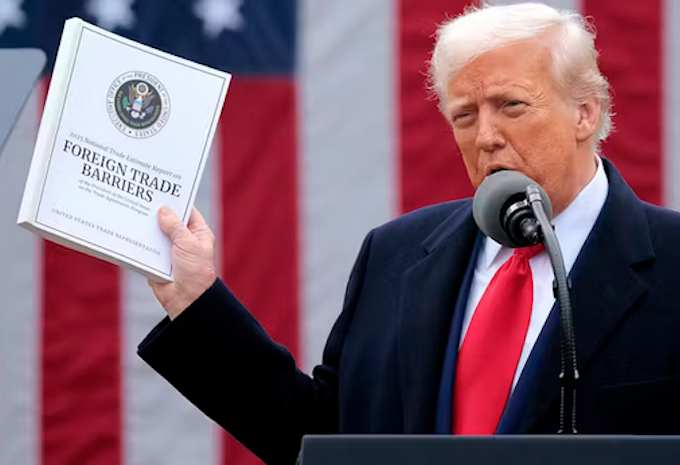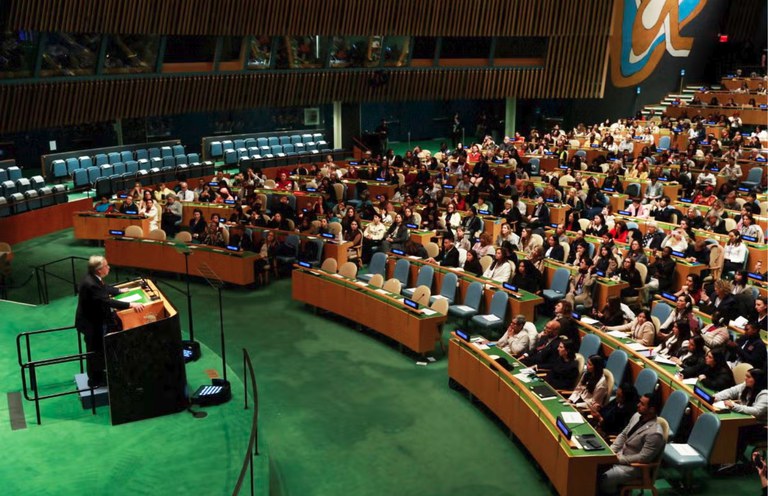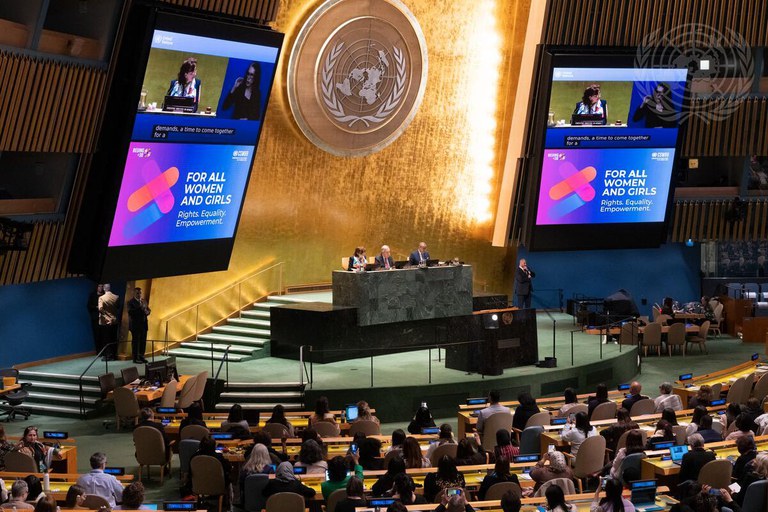Former UNSCOM weapons inspector Scott Ritter usually provides excellent analysis of geopolitical events and places them in a morally centered framework. However, in a recent X post, Ritter defends a controversial stance blaming Iran for US and Israeli machinations against Iran.
Ritter opened, “I have assiduously detailed the nature of the threat perceived by the US that, if unresolved, would necessitate military action, as exclusively revolving around Iran’s nuclear program and, more specifically, that capacity that is excess to its declared peaceful program and, as such, conducive to a nuclear weapons program Iran has admitted is on the threshold of being actualized.”
Threats perceived by the US. These threats range from North Korea, Viet Nam, Grenada, Panama, Iraq, Libya, Syria, Yemen, Iran, China, and Russia. Question: Which of the aforementioned countries is about to — or ever was about to — attack the US? None. (Al Qaeda is not a country) So why does Ritter imply that military action would be necessitated? Is it a vestige of military indoctrination left over from his time as a marine? In this case, why is Ritter not focused on his own backyard and telling the US to butt out of the Middle East? The US, since it is situated on a continent far removed from Iran, should no more dictate to Iran what its defense posture should be in the region than Iran should dictate what the US’s defense posture should be in the northwestern hemisphere.
Ritter: “In short, I have argued, the most realistic path forward regarding conflict avoidance would be for Iran to negotiate in good faith regarding the verifiable disposition of its excess nuclear enrichment capability.”
Ritter places the onus for conflict avoidance on Iran. Why? Is Iran seeking conflict with the US? Is Iran making demands of the US? Is Iran sanctioning the US? Moreover, who gets to decide what is realistic or not? Is what is realistic for the US also realistic for Iran? When determining the path forward, one should be aware of who and what is stirring up conflict. Ritter addresses this when he writes, “Even when Trump alienated Iran with his ‘maximum pressure’ tactics, including an insulting letter to the Supreme Leader that all but eliminated the possibility of direct negotiations between the US and Iran…” But this did not alter Ritter’s stance. Iran must negotiate — again. According to Ritter negotiations are how to solve the crisis, a crisis of the US’s (and Israel’s) making.
Iran had agreed to a deal — the Joint Comprehensive Plan of Action (JCPOA) — with the five permanent members of the UN Security Council (China, France, Russia, the United Kingdom, and the United States) and Germany — collectively known as the P5+1 — with the participation of the European Union. The JCPOA came into effect in 2016. During the course of the JCPOA, Iran was in compliance with the deal. Nonetheless, Trump pulled the US out of the deal in 2018.
Backing out of agreements/deals is nothing new for Trump (or for that matter, the US). For example, Trump pulled out of the Paris Agreement on climate, the Trans-Pacific Partnership on trade, the United Nations cultural organization UNESCO, and the North American Free Trade Agreement, which was subsequently renegotiated under Trump to morph into the U.S.-Mexico-Canada Trade Agreement, which is now imperilled by the Trump administration’s tariff threats, as is the World Trade Organization that regulates international trade.
Should Iran, therefore, expect adherence to any future agreement signed with the US?
Ritter insists that he is promoting a reality-based process providing the only viable path toward peace. Many of those who disagree with Ritter’s assertion are lampooned by him as “the digital mob, comprised of new age philosophers, self-styled ‘peace activists’, and a troll class that opposes anything and everything it doesn’t understand (which is most factually-grounded argument), as well as people I had viewed as fellow travelers on a larger journey of conflict avoidance—podcasters, experts and pundits who did more than simply disagree with me (which is, of course, their right and duty as independent thinkers), traversing into the realm of insults and attacks against my intelligence, integrity and character.”
Ritter continued, “The US-Iran crisis is grounded in the complexities, niceties and formalities of international law as set forth in the nuclear nonproliferation treaty (NPT), which Iran signed in 1970 as a non-nuclear weapons state. The NPT will be at the center of any negotiated settlement.”
Is it accurate to characterize the crisis as a “US-Iran crisis”? It elides the fact that it is the US imposing a crisis on Iran. More accurately it should be stated as a “US crisis foisted on Iran.”
Ritter argues, “… the fact remains that this crisis has been triggered by the very capabilities Iran admits to having—stocks of 60% enriched uranium with no link to Iran’s declared peaceful program, and excessive advanced centrifuge-based enrichment capability which leaves Iran days away from possessing sufficient weapons grade high enriched uranium to produce 3-5 nuclear weapons.”
So, Ritter blames Iran for the crisis. This plays off Israeli prime minister Benjamin Netanyahu who has long accused Iran of seeking nukes. But it ignores the situation in India and Pakistan. Although the relations between the two countries are tense, logic dictates that open warring must be avoided lest it lead to mutual nuclear conflagration. And if Iran dismantles its nuclear program? What happened when Libya dismantled its nuclear program? Destruction by the US-led NATO. As A.B. Abrams wrote, Libya paid the price for
… having ignored direct warnings from both Tehran and Pyongyang not to pursue such a course [of unilaterally disarming], Libya’s leadership would later admit that disarmament, neglected military modernisation, and trust in Western good will proved to be their greatest mistake–leaving their country near defenceless when Western powers launched their offensive in 2011. (Immovable Object: North Korea’s 70 Years at War with American Power, Clarity Press, 2020: p 296)
And North Korea has existed with a credible deterrence against any attack on it since it acquired nuclear weapons.
Relevant background to the current crisis imposed on Iran
- The year 1953 is a suitable starting point. It was in this year that the US-UK (CIA and MI6) combined to engineer a coup against the democratically elected Iranian government under prime minister Mohammad Mossadegh. Mossadegh had committed the unpardonable sin of nationalizing the British-owned Anglo-Iranian Oil Company.
- What to replace the Iranian democracy with? A monarchy. In other words, a dictatorship because monarchs are not elected, they are usually born into power. Thus, Mohammad Reza Pahlavi would rule as the shah of Iran for 26 years protected by his secret police, the SAVAK. Eventually, the shah would be overthrown in the 1979 Iranian Revolution.
- In an attempt to force Iran to bend knee to US dictate, the US has imposed sanctions, issued threats, and fomented violence.
- Starting sometime after 2010, it is generally agreed among cybersecurity experts and intelligence leaks that the Iranian nuclear program was a target of cyberwarfare by the US and Israel — this in contravention of the United Nations Charter Article 2 (1-4):
1. The Organization is based on the principle of the sovereign equality of all its Members.
2. All Members, in order to ensure to all of them the rights and benefits resulting from membership, shall fulfill in good faith the obligations assumed by them in accordance with the present Charter.
3. All Members shall settle their international disputes by peaceful means in such a manner that international peace and security, and justice, are not endangered.
4. All Members shall refrain in their international relations from the threat or use of force against the territorial integrity or political independence of any state, or in any other manner inconsistent with the Purposes of the United Nations.
- The Stuxnet virus caused significant damage to Iran’s nuclear program, particularly at the Natanz uranium enrichment facility.
- Israel and the United States are also accused of being behind the assassinations of several Iranian nuclear scientists over the past decade.
- On 3 January 2020, Trump ordered a US drone strike at Baghdad International Airport in Iraq that assassinated Iranian General Qasem Soleimani as well as Soleimani ally Abu Mahdi al-Muhandis, a top Iraqi militia leader.
- On 7 October 7 2023, Hamas launched a resistance attack against Israel’s occupation. Since then, Israel has reportedly conducted several covert and overt strikes targeting Iran and its proxies across the region.
- Israeli prime minister Benjamin Netanyahu has accused Iran of seeking nukes for nearly 30 years, long before Iran reached 60% enrichment in 2021. In Netanyahu’s book Fighting Terrorism (1995) he described Iran as a “rogue state” pursuing nukes to destroy Israel. Given that a fanatical, expansionist Zionist map for Israel, the Oded-Yinon plan, draws a Jewish territory that touches on the Iranian frontier, a debilitated Iran is sought by Israel.

Oded Yinon Plan
Says Ritter, “This crisis isn’t about Israel or Israel’s own undeclared nuclear weapons capability. It is about Iran’s self-declared status as a threshold nuclear weapons state, something prohibited by the NPT. This is what the negotiations will focus on. And hopefully these negotiations will permit the verifiable dismantling of those aspects of its nuclear program the US (and Israel) find to present an existential threat.”
Why isn’t it about Israel’s nuclear weapons capability? Why does the US and Ritter get to decide which crisis is preeminent?
It is important to note that US intelligence has long said that no active Iranian nuclear weapon project exists.
It is also important to note that Arab states have long supported a Middle East Zone Free of Weapons of Mass Destruction (WMDFZ), particularly nuclear weapons, but Israel and the US oppose it.
It is also important to note that, in 2021, the U.S. opposed a resolution demanding Israel join the NPT and that the US, in 2018, blocked an Arab-backed IAEA resolution on Israeli nukes. (UN Digital Library. Search: “Middle East WMDFZ”)
As far as the NPT goes, it must be applied equally to all signatory states. The US as a nuclear-armed nation is bound by Article VI which demands:
Each of the Parties to the Treaty undertakes to pursue negotiations in good faith on effective measures relating to cessation of the nuclear arms race at an early date and to nuclear disarmament, and on a treaty on general and complete disarmament under strict and effective international control.
Thus, hopefully negotiations will permit the verifiable dismantling of those aspects of the Iranian, US, and Israeli nuclear programs (as well as the nuclear programs of other nuclear-armed nations) that are found to present an existential threat.
Ritter warns, “Peace is not guaranteed. But war is unless common sense and fact-based logic wins out over the self-important ignorance of the digital mob and their facilitators.”
A peaceful solution is not achieved by assertions (i.e., not fact-based logic) or by ad hominem. That critics of Ritter’s stance resort to name-calling demeans them, but to respond likewise to one’s critics also taints the respondent.
Logic dictates that peace is more-or-less guaranteed if UN member states adhere to the United Nations Charter. The US, Iran, and Israel are UN member states. A balanced and peaceful solution is found in the Purposes and Principles as stipulated in Article 1 (1-4) of the UN Charter:
The Purposes of the United Nations are:
1. To maintain international peace and security, and to that end: to take effective collective measures for the prevention and removal of threats to the peace, and for the suppression of acts of aggression or other breaches of the peace, and to bring about by peaceful means, and in conformity with the principles of justice and international law, adjustment or settlement of international disputes or situations which might lead to a breach of the peace;
2. To develop friendly relations among nations based on respect for the principle of equal rights and self-determination of peoples, and to take other appropriate measures to strengthen universal peace;
3. To achieve international co-operation in solving international problems of an economic, social, cultural, or humanitarian character, and in promoting and encouraging respect for human rights and for fundamental freedoms for all without distinction as to race, sex, language, or religion; and
4. To be a centre for harmonizing the actions of nations in the attainment of these common ends.
It seems that only by refusing to abide by one’s obligations laid out the UN Charter and NPT that war looms larger.
In Ritter’s reality, the US rules the roost against smaller countries. Is such a reality acceptable?
It stirs up patriotism, but acquiescence is an affront to national dignity. Ritter will likely respond by asking what god is dignity when you are dead. Fair enough. But in the present crisis, if the US were to attack Iran, then whatever last shred of dignity (is there any last shred of dignity left when a country is supporting the genocide of human beings in Palestine?) that American patriots can cling to will have vanished.
By placing the blame on Iran for a crisis triggered by destabilizing actions of the US and Israel, Ritter asks for Iran to pay for the violent events set in motion by US Israel. If Iran were to cave to Trump’s threats, they would be sacrificing sovereignty, dignity, and self-defense.
North Korea continues on. Libya is still reeling from the NATO offensive against it. Iran is faced with a choice.
The Mexican revolutionary Emiliano Zapata knew his choice well: “I’d rather die on my feet, than live on my knees.”
The post
Should Iran Bend Knee to Donald Trump? first appeared on
Dissident Voice.
This content originally appeared on Dissident Voice and was authored by Kim Petersen.
This post was originally published on Radio Free.






 Sympathy for Israeli former captive Eli Sharabi must not obscure the bigger picture: he has allowed himself to be recruited to Israel’s propaganda campaign for genocide.
Sympathy for Israeli former captive Eli Sharabi must not obscure the bigger picture: he has allowed himself to be recruited to Israel’s propaganda campaign for genocide.






